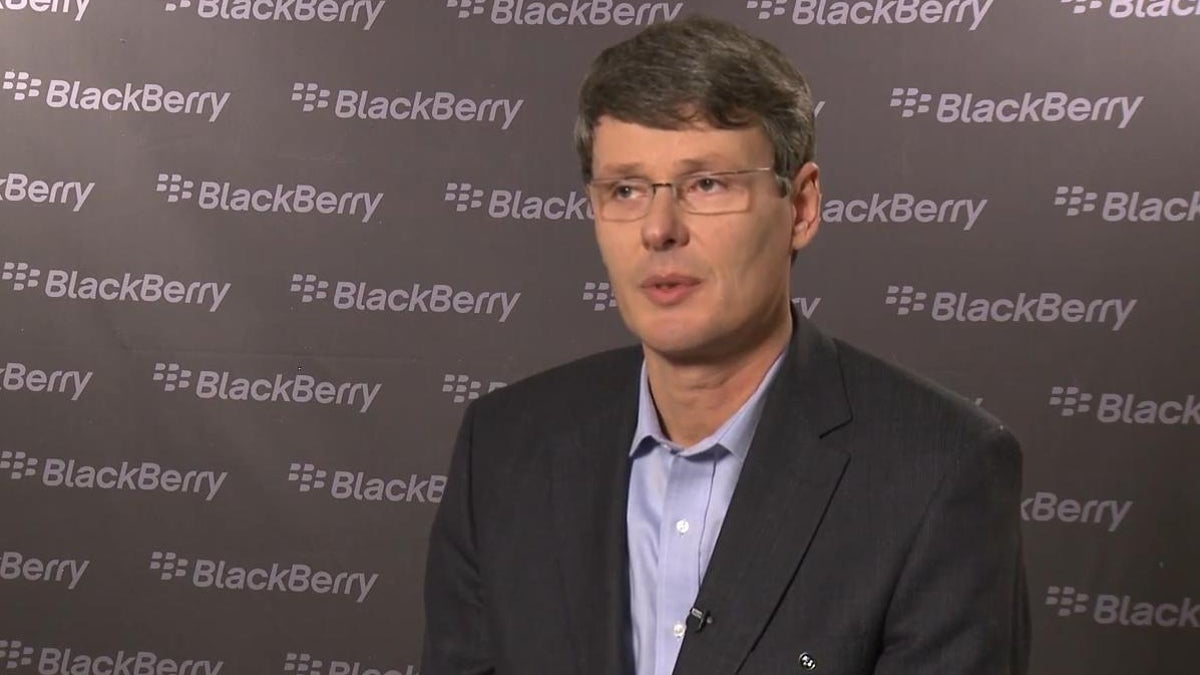RIM finally seems to get it
Research In Motion finally seems to be getting a clue about the trouble it's in. But is it too late to avert disaster?

The urgency in Research In Motion CEO Thorstein Heins was palpable during the company's first quarterly conference call, suggesting he may be the right man for this job after all.
Even more so than last quarter's mea culpa from former co-CEOs Jim Balsillie and Mike Lazaridis, Heins was as forthright as any RIM executive has been. It was a far cry from his comments shortly after taking over as CEO, when he believed RIM was on the right track. It appears after 10 weeks on the jobs, his eyes have opened up to the real problems facing RIM.
"It's clear to me substantial change is what we need," Heins said during the call.
While Balsillie and Lazaridis spent the last quarterly call acknowledging the problems and taking a token pay cut, Heins was all about action.
Balsillie resigned as director, while two high-level executives, Chief Technology Officer David Yach and Chief Operating Officer Jim Rowan, were also out of the company.
RIM will stop pretending it's a consumer company and refocus itself on the development of business-centric services and products, relying on partnerships to augment its consumer features. He admitted RIM had spread itself too thin "trying to be all things to all people." It will still foster the still-growing emerging markets with a new line of low-cost BlackBerry 7 smartphones, and likely offer discounts to slow the bleeding and get more BlackBerrys on the market.
While Heins said the company's main intent is to remain independent, he opened the door to a possible sale as the company looks to explore its different options, which could also include partnerships, cross-licensing deals, and joint ventures. While he said he would prefer to remain an integrated provider in control of the device, software, and network, he said he was open to partnering with others if that was smarter. That thought was previously taboo at RIM.
The fact is Heins really had no choice but to make some dramatic moves. RIM's future looks bleak, with the company swinging to a loss in the fiscal fourth quarter amid a dramatic 80 percent drop in BlackBerry shipments from a year ago. With no major devices coming until the second half, it'll still have some room to fall as its rivals push out new products. There's no guarantee that Heins will be able turn this ship around.
But with Heins clearing out some of the management team and talking about instituting major changes to the company's corporate culture and strategy, he has bought himself some time as Wall Street ponders how he'll fare. Yes, the results will continue to get worse. But at this point, terrible results are a surprise to no one.
Heins appears to be betting heavily on BlackBerry 10. More than once, he stressed that BB10 was a platform, not just a product, and talked about the wide portfolio of devices to come. He believes the advanced software will make it competitive at businesses that allow employees to bring their own phone to work. Again, Heins is buying himself some time with BB10, which doesn't launch until the second half of the year.
In the meantime, his focus on enterprise is likely music to a lot of people's ears. RIM has too long tried to focus on being a consumer-friendly device, but never really had the chops to succeed in that market. The BlackBerry Pearl was the last consumer-centric device that RIM could really call a hit. Heins said he would start eliminating projects that didn't relate directly to the business aspect of RIM, which will help bring some badly needed focus back to the company.
"We're making the necessary changes at the company," Heins said.

